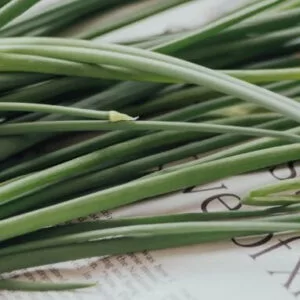Lemon Grass Seeds (30seeds)
Original price was: ₹70.0.₹35.0Current price is: ₹35.0.
Lemon Grass is a herb that has a lot of medicinal properties. For gardeners looking to get the most bang out of their real estate buck, edible landscaping fills two desires, increasing curb appeal and getting fresh herbs. It can be added as a flavoring agent to tea and cakes. Try our Non-GMO Lemon Grass Seeds. Also, check out our workshops for more details.
PRODUCT DESCRIPTION
Number of seeds in a packet – 30
PLANT DESCRIPTION
- Difficulty Level – easy
- Plant Height – 3 – 5 feet
- Aroma – mild lemon
- Flavor – citrusy mint
- Type – indoor (balcony/ terrace) or outdoor
- Feed – Vermicompost for nutrients every week, Seaweed once a month for greener leaves, and Epsom salt for better blooming once a month
- Watering – alternate days
- Sunlight – full sunlight with partial shade
- Germination Time – 1 week
- Suitable Temperature – 50°F – 70°F
- Season – annual
- Sowing – early summer
HOW TO GROW LEMON GRASS FROM SEEDS
- Take a Growbag and fill it with Cocopeat.
- Sprinkle the seeds around the Growbag.
- Fill the hole with Cocopeat lightly and spray water using a spray gun or spray bottle.
- Keep the soil moist not soggy.
- Seeds will germinate within a week.
- Full sunlight with partial shade is needed.
ALTERNATE METHOD
- Take a Medium Size Pot and add a Potting Mix.
- If planting in the soil add Neem Cake Powder, Vermicompost, and Seaweed.
ALTERNATE NAME
Botanical name: Cymbopogon citratus
lemon grass seed in hindi: leman graas beej (लेमन ग्रास बीज)
lemon grass seed in tamil: elumiccai pul vitai (எலுமிச்சை புல் விதை)
lemon grass seed in telugu: nim’ma gaddi sid (నిమ్మ గడ్డి సీడ్)
lemon grass seed in kannada: nimbe hullina bija (ನಿಂಬೆ ಹುಲ್ಲಿನ ಬೀಜ)
lemon grass seed in marathi: limbu gavata biyane (लिंबू गवत बियाणे)
lemon grass seed in malayalam: naaranga pullu vithu (നാരങ്ങ പുല്ല് വിത്ത്)
Other names: Barbed wire grass, silky heads, oily heads, citronella grass, or fever grass
You must be logged in to post a review.
Q & A
The sustainability of organic herbal seeds depends on various factors, including cultivation practices, seed sources, and environmental considerations. Here are some aspects to consider regarding the sustainability of organic herbal seeds:
Organic cultivation: Organic herbal seeds are typically grown without the use of synthetic fertilizers, pesticides, or genetically modified organisms (GMOs). Organic farming practices focus on maintaining soil health, biodiversity, and minimizing the use of non-renewable resources. By choosing organic herbal seeds, you support sustainable agricultural practices.
Seed sources: It is important to ensure that the organic herbal seeds you purchase come from reputable sources. Look for certified organic seed suppliers or companies that adhere to organic standards. This helps maintain the integrity and sustainability of the seed supply chain.
Biodiversity conservation: Organic farming often emphasizes the conservation of biodiversity. When herbal crops are cultivated organically, it promotes the preservation of native plant species, beneficial insects, and other organisms in the ecosystem. This contributes to the overall sustainability of the environment.
Reduced chemical pollution: Organic cultivation practices eliminate or minimize the use of synthetic pesticides and fertilizers. This helps prevent chemical pollution in soil, water bodies, and surrounding ecosystems. By opting for organic herbal seeds, you support a healthier environment with reduced chemical inputs.
Adaptation and resilience: Organic herbal seeds are often selected for their adaptability to local environmental conditions. Organic farmers typically focus on using open-pollinated and heirloom seed varieties, which have a higher likelihood of being well-adapted to specific regions. This can enhance crop resilience and reduce the dependence on external inputs.
Seed-saving practices: Organic herbal seeds are often associated with the practice of seed saving, where farmers and gardeners collect and store seeds from their own crops for future use. Seed-saving promotes self-sufficiency, biodiversity, and the preservation of traditional plant varieties.
Consumer demand: The sustainability of organic herbal seeds is also influenced by consumer demand. When consumers actively seek and support organic products, including herbal seeds, it encourages farmers to adopt sustainable cultivation practices. Increased demand can lead to more investment in organic agriculture, research, and development of sustainable farming techniques.
Remember that sustainability is a complex concept, and the practices and standards associated with organic farming can vary. It's always beneficial to research specific seed suppliers, certifications, and agricultural practices to ensure that the organic herbal seeds you choose align with your sustainability goals.
General Inquiries
There are no inquiries yet.



















Reviews
There are no reviews yet.